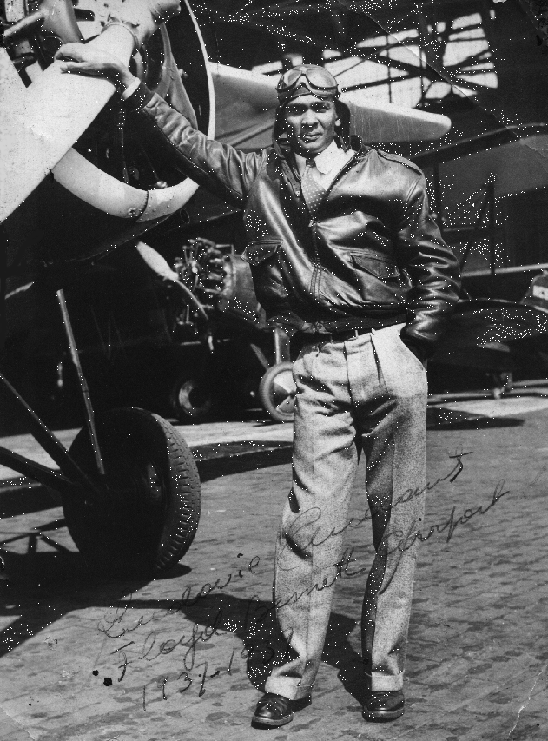Source: MIA
From 1943 to 1944, six Haitian military officers were selected to train at the Tuskegee Army Air Field, to serve alongside their American counterparts on pilot missions during World War II. The first group included Raymond Cassagnol, Alix Pasquet, and Philippe Célestin, followed by three more: Eberle J. Guilbaud, Nicolas C. Pelissier, and Ludovic F. Audant.
Audant was born on October 12, 1911, in Jérémie, Haiti, to General Chenier Audant and Marguerite Lestage. From his father, Ludovic learned the value and challenges of military service. From his mother, he learned the importance of education and an appreciation of music, which led him to become a piano player.
Ludovic traveled to the U.S. in 1937 to be a student at the Brooklyn Floyd Bennet Field in New York City, where he earned his private pilot’s license in 1939. He paid for his childhood dream of becoming a pilot by working at local restaurants peeling potatoes. Ludovic also utilized the skills his mother taught him and played jazz piano at Harlem and Brooklyn nightclubs.
Soon after, the U.S. Army Air Force began running notices in Haitian newspapers to recruit pilots for the Tuskegee Army Airfield training program. The U.S. also established the Aviation Corps of the Haitian Guard with that goal in mind. Ludovic returned to Haiti with the hopes of joining the Haitian military and then becoming part of the Aviation Corp. On December 31, 1941, Ludovic went back to the U.S. to become an aviation mechanic student at the Casey Jones School of Aeronautics in New Jersey. On February 15, 1942, while a student at the Casey School, Ludovic registered for service with the U.S. military and was later accepted to the Tuskegee training program, graduating on February 8, 1944.
After earning his U.S. military wings, 2nd Lt. Audant returned to Haiti and was assigned to fly the Haitian coastline on patrol service for the Aviation Corps. He also helped train new pilots for the Aviation Corps.
While serving under the totalitarian Haitian presidency of François Duvalier from 1957 to 1971, Lt. Audant was ordered to use his airplane guns on an area that included civilians. Refusing to obey the order, he fired his guns into the sea, returning from the mission without committing what he considered to be a war crime. He retired from service because of similar conflicts during the early 1960s. He would later serve as a radio operator for Pan American Airways and as an air traffic controller. Audant passed away on September 23, 1974, at the age of 62.

